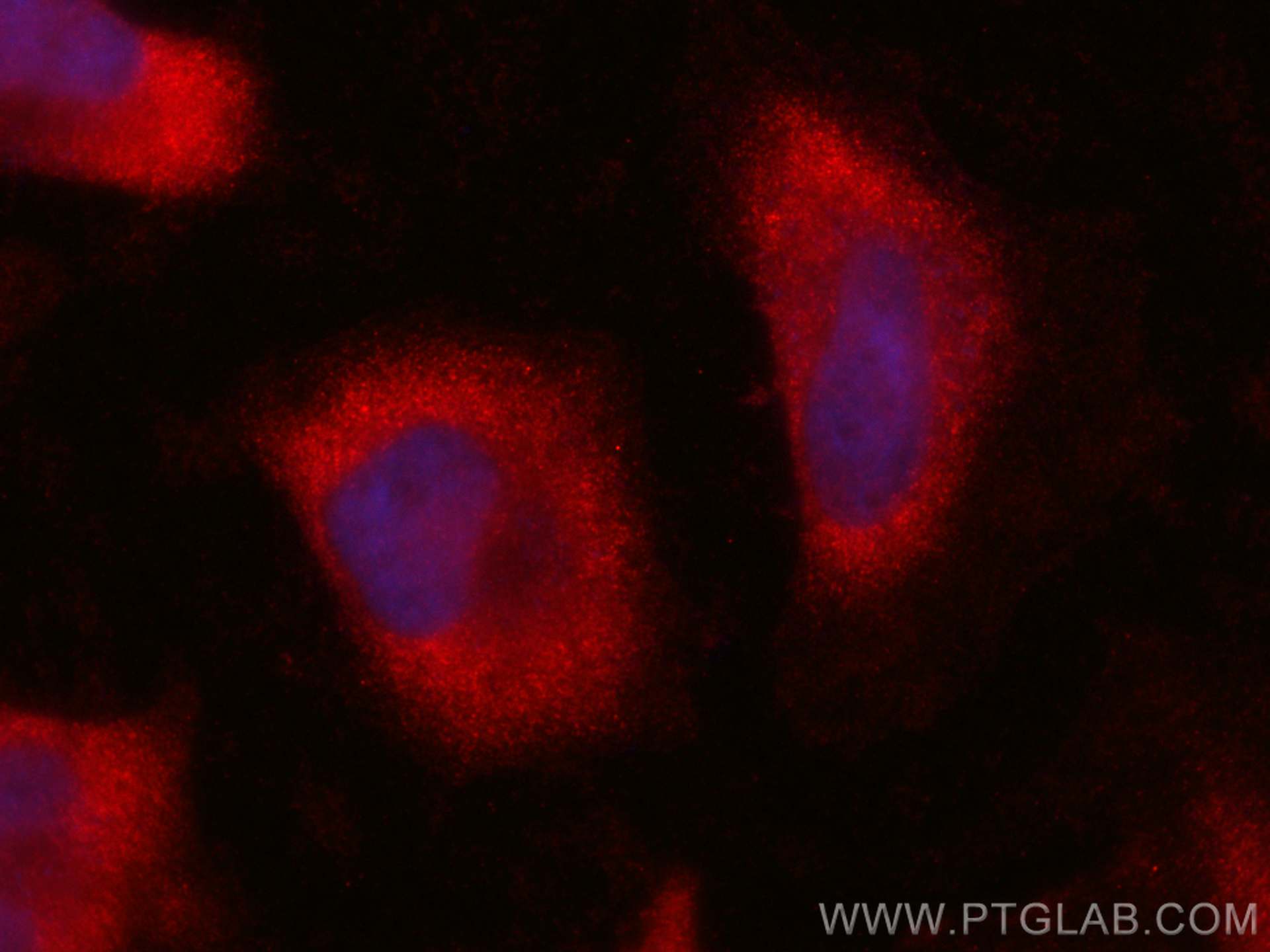Validation Data Gallery
Filter:
Tested Applications
| Positive IF/ICC detected in | HeLa cells |
Recommended dilution
| Application | Dilution |
|---|---|
| Immunofluorescence (IF)/ICC | IF/ICC : 1:50-1:500 |
| It is recommended that this reagent should be titrated in each testing system to obtain optimal results. | |
| Sample-dependent, Check data in validation data gallery. | |
Product Information
CL594-60305 targets SGTA in IF/ICC applications and shows reactivity with human, mouse samples.
| Tested Reactivity | human, mouse |
| Host / Isotype | Mouse / IgG2b |
| Class | Monoclonal |
| Type | Antibody |
| Immunogen | SGTA fusion protein Ag1475 相同性解析による交差性が予測される生物種 |
| Full Name | small glutamine-rich tetratricopeptide repeat (TPR)-containing, alpha |
| Calculated molecular weight | 34 kDa |
| Observed molecular weight | 34-37 kDa |
| GenBank accession number | BC008885 |
| Gene Symbol | SGTA |
| Gene ID (NCBI) | 6449 |
| RRID | AB_2883459 |
| Conjugate | CoraLite®594 Fluorescent Dye |
| Excitation/Emission maxima wavelengths | 588 nm / 604 nm |
| Form | Liquid |
| Purification Method | Protein A purification |
| UNIPROT ID | O43765 |
| Storage Buffer | PBS with 50% glycerol, 0.05% Proclin300, 0.5% BSA , pH 7.3 |
| Storage Conditions | Store at -20°C. Avoid exposure to light. Stable for one year after shipment. Aliquoting is unnecessary for -20oC storage. |
Background Information
Small glutamine-rich tetratricopeptide repeat-containing protein alpha (SGTA) is a steroid receptor molecular co-chaperone critical in a range of biological processes, including viral infection, cell division, mitosis, and cell cycle checkpoint activation. Overexpression of SGTA has been found in various cancers, including prostate/ovary/testis/liver/lung cancer.
Protocols
| Product Specific Protocols | |
|---|---|
| IF protocol for CL594 SGTA antibody CL594-60305 | Download protocol |
| Standard Protocols | |
|---|---|
| Click here to view our Standard Protocols |
